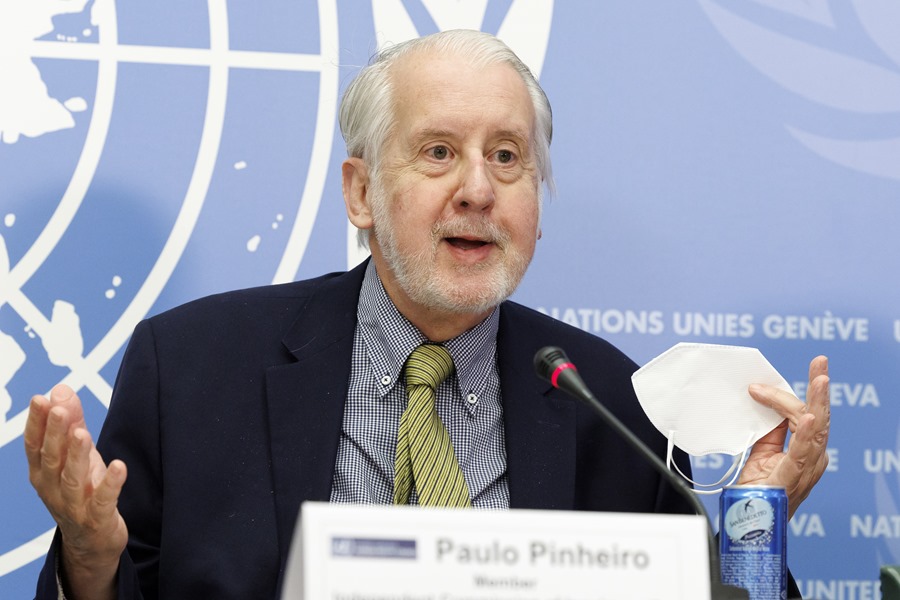Geneva (EFE) to have acted slowly.
“The Syrian government took a week to consent to the arrival of humanitarian aid across the border and both it and the Syrian National Army rebels prevented that aid from reaching affected communities,” stressed the commission made up of three experts.
Similarly, the terrorist group known as the Organization for the Liberation of the Levant (Hayat Tahrir al-Sham, HTS), which operates in northwestern Syria affected by the earthquakes, rejected the arrival of aid from Damascus, they said.
“There was a vast failure on the part of the Syrian government but also of the international community, including the United Nations, when it came to bringing vital aid to Syrians in desperate situation,” Brazilian Paulo Pinheiro, president of the commission, concluded at a press conference.

The attacks did not stop after the earthquakes
“The conflict not only did not stop during the earthquake, but the attacks continued,” added Pinheiro, who denounced in this regard those recently carried out by the Israeli army against the Aleppo international airport and other nearby areas.
The mission also reproached all parties for their unwillingness to seek an immediate pause in hostilities to help the victims, for which “the Syrian population felt abandoned in moments of greatest despair.”
The head of the mission demanded that these negligence be investigated and those responsible held accountable.
The experts launched these accusations at the presentation of a new report on human rights violations in the Syrian conflict, which is about to turn 12 years old.
The new document, which will be presented to the UN Human Rights Council on March 21, focuses especially on abuses reported in the last six months, approximately the time that has elapsed since the last appearance of the experts before the aforementioned United Nations body. United.
In areas controlled by the Bashar al Asad regime, the report denounces that human rights violations such as arbitrary detention, torture and forced disappearances continue.
Several indiscriminate government attacks against civilians in the northwest of the country (the area that was later affected by the earthquakes) were documented, such as the one perpetrated with explosive shells that killed seven people in November in Idlib, or one in which 16 people died in a market near Aleppo.
Related to these attacks, another one carried out in July by Russian military aircraft, an ally of Al Asad, destroyed a civilian home, killing seven people and injuring 13 others.
The report also collected violations committed in the northeast by the Syrian Democratic Forces, the alliance led by Kurdish fighters, which according to the mission “continues to illegally deprive 56,000 people, mostly women and children, of their liberty in Al Hol camps and Roj”.
Conditions in prison camps
The conditions in these camps for the prisoners, detained there for being considered relatives of Islamic State militants, continue to deteriorate and the mistreatment they suffer could be considered a war crime, experts warned.
They also stressed that HTS has committed abuses ranging from arbitrary arrests to torture and even executions by firing squad, silencing critical voices in areas under its control.
The report was prepared before the earthquakes with interviews with victims of abuse carried out by members of this commission, which, together with its president Pinheiro, includes the Egyptian Hanny Megally and the British Lynn Welchmann.






